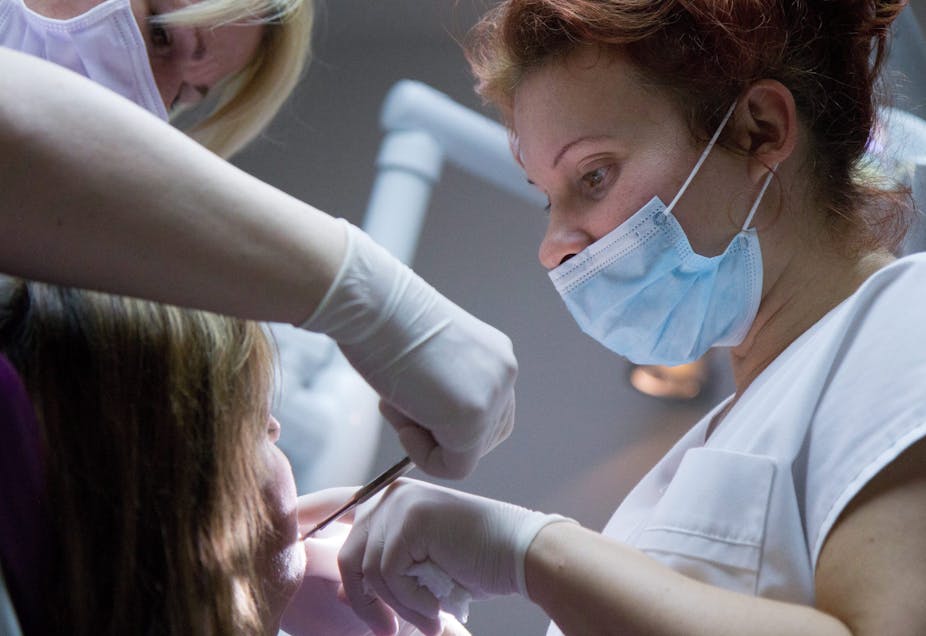As many of us recover from the festive binge of overeating, drinking too much and not exercising enough, spare a thought for the new health minister as she plans for 2012. An exciting agenda looms – will we finally see a national dental scheme? And will the government finally manage to address escalating healthcare costs?
Teeth and all
A national dental scheme is desperately needed in the face of mounting evidence that our general health very much depends on the state of our mouths. Cancer, arthritis, heart disease are all more common if you have tooth and gum disease and poor oral health makes good nutrition more challenging for the elderly.
So a dental scheme would be a good public health strategy and needs to be developed not just around dentists but to include other members of the dental team – assistants, hygienists and oral therapists – all well trained and working in a delegated model of care to dentists.
Dentists do team care much better than medics since medical care is still very much centred on the medical model in which doctors call all the shots. This model is slowly changing with increased access to the various funding streams by nurses, allied health professionals, and even pharmacists, but such changes need to speed up.
No “I” in team
With modern communication technology, there are no longer any reasons for a doctor to see the whites of a patient’s eyes before providing advice. In fact, doctors may not even need to be involved in initial consultations.
Rather, what we need are appropriately trained professionals as part of a care team that recognises both their competencies – what they know – and their incompetencies – what they don’t know and when and how to ask for help. This is not rocket science but good team management with each person having a role to play to make the whole system more productive.
Indeed, as we move into the new year this is one of Tanya Plibersek’s major challenges – how to get more productivity into the health system.
The Productivity Commission report on Health Workforce (2006) suggested the healthcare system (particularly the public hospital system) was 20% inefficient and all we have done since is provide it with more funding. We need to look carefully at why the private system is so much better in term of outputs and outcomes. Is it because they have different nurse/patient ratios? Is it the complexity of the illnesses they deal with? Or, is it renumeration incentives – there must be some answers here?
We should know the answers to these questions because it is our health system – our taxes fund it and we should demand greater accountability from it. Although we have one of the best such systems on the planet, costs are rising dramatically.
Creative thinking
The health budget is in excess of $110 billion and increasing at a rate greater than that gross domestic product (GDP). The idea that states will maintain 30% of new government spending each year on health in the face of predictions that health costs will reach 20% of GDP by 2025 seems to suggest that either treasury is asleep at the wheel, or, more cynically, that politicians consider it won’t happen on their watch.
Would it not be better to look to the community and engage it seriously in a debate about what kind of health system we want? And, even more importantly, how we’re going to take some responsibility for own own health care. Most health professionals work as part of a team – we espouse patient-focused or centred care but how can we make patients and other members of the community a part of that team?
Some of the new health arrangements, such as Medicare locals, open up an opportunity for real patient engagement but only if we shift the focus from a medical model of health to one that is much more focussed on the whole community – on education, employment and other social determinants of health.
If we accept that health is best cared for by a team of people and that patients and the community has to be an integral part of that team, perhaps we should consider paying patients to maintain their own health, much like we pay everyone else in the team. Now, that’s a novel thought for the new year!

